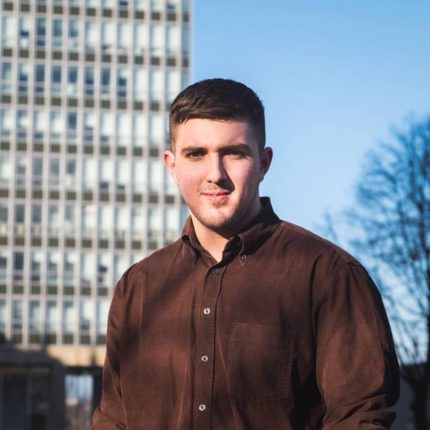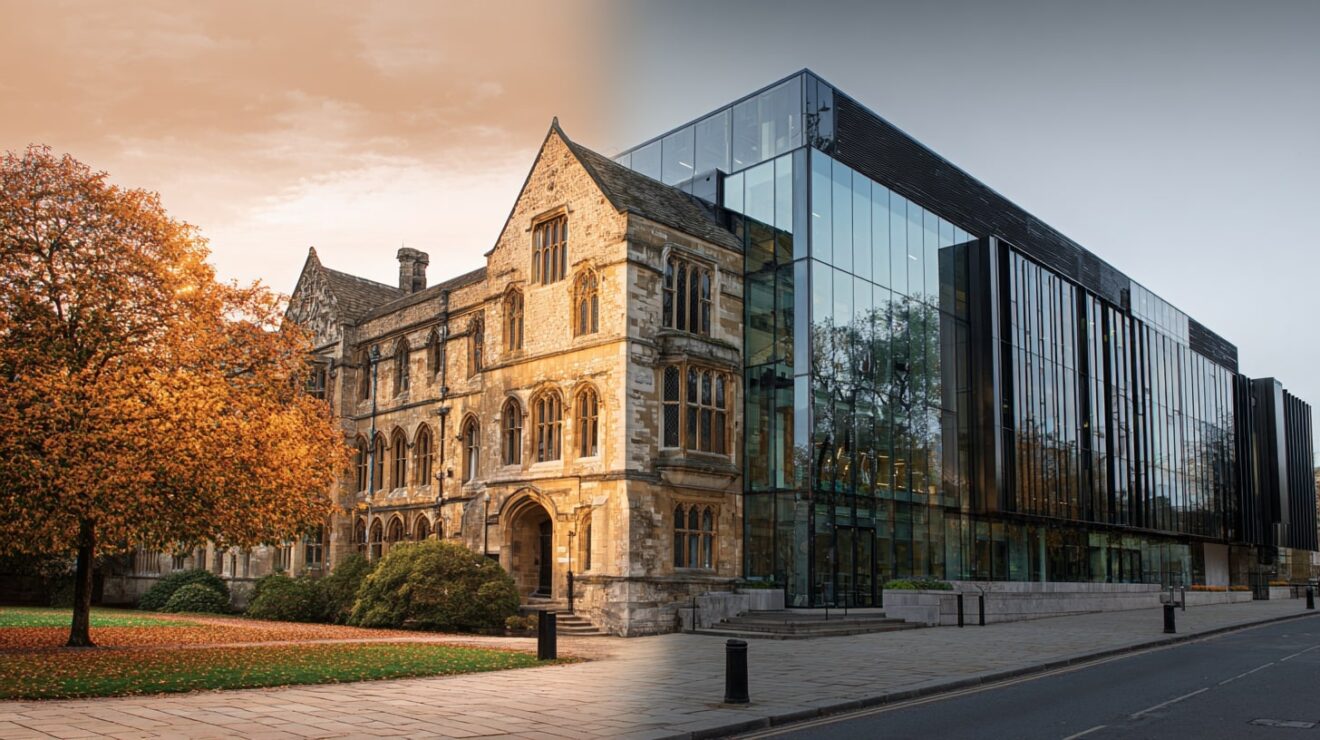The Wonkhe SUs tour of the Baltics was an incredible trip, and one where all 15 UK SUs who went learned a great deal.
We’ve saw radically governance structures; students taking tests to represent their SU; a dedicated student NHS; the pressure facing student workers and the resources that SU’s everywhere are allocating towards student mental health.
The issues that we face as UK organisations are not dissimilar to our European counterparts, and it’s through collaboration, strong partnerships and teamwork that we’ll find solutions to those issues.
Representation is the key
As sabbatical officers, we are uniquely placed to have a significant impact on how our universities should be run. Whether it’s sitting on university council/governors or senate/academic board, having regular meetings with VCs or kickstarting student campaigns on the issues that matter to us, we’re good at getting our voices heard.
But after spending a week with our European friends in the Baltics, it’s become clear that we’ve got a lot more to do in terms of getting student voices at the table. Most importantly, there’s an even greater need once we’re there to make sure they are heard and acted on as equal to the university’s. It’s not our fault our voice isn’t as strong as it could be. But it is our job to make sure it’s stronger than it has ever been.
One thing which clearly stood out during the trip was the attitudes of both the Government and HEI’s towards students. There students are seen as a key part of the university, rather than a formality in their governance structures. In Latvia, Lithuania and Estonia, student leadership is written in law in each country such that all university committees must be composed of at least 20% students. In Estonia, student members of committees get a veto over student interest issues at committees – a “nuclear button” rarely pressed that actually enhances engagement.
Finland goes one better. They run a tripartite system where boards by law must have at least 33% students (33% academics, and 33% professional services). This is in stark contrast to the United Kingdom, in which marketisation and other forces have governing bodies typically “allow” just one sabbatical officer to sit on them. In the Baltics and Finland the partnership between staff and students is what makes a university – and students get the voice they need.
Our sector needs to be brave in coming years and fully embrace the ideals of partnership, compromise and a preparedness to make (and learn from) mistakes. We’ll need more than just sabbs – if we can find a way to recruit and engage the talented students in our universities outside of our formal SU structures and give them a regular and direct line to decision makers, things will work for everyone. It’s pivotal that students are heard more, give a true and accurate reflection of what studying at university is like and are able to challenge the university alongside sabbatical officers rather than using them as a conduit to management.
Risky business
Bravery doesn’t have to mean risk. The fact that so many student officers on our tour talked about their work with HEI’s being truly partnership-led is encouraging and exciting. SYL, the National Finnish Union, summed this up quite nicely when talking about their relationship with the state. “We’re never going to get government who fully agree with us, but close is good”. Close is good, but together is better and if we can start to do that more, we’ll start to get things done and see more value in each other.
We should start this change by asking. We should talk to Vice-Chancellors and work together on getting more students involved. We should speak to lay members of boards about how students have so much to offer and inform them beyond the corporate world. And outside of the big meetings, we should argue for standards on student partnership to apply everywhere – in catering, estates, schools, faculties and graduation offices.
What should SUs do?
But as well as what we might ask of universities, there’s a great chance for us to step back and reflect on our own democracy, governance and representation. For the most part, the student officers in the Baltic countries work on an entirely voluntary basis and take no salary. This is incredible in itself, but it’s worth mentioning that these officers have incredibly limited, if any staff support. Many of the officers we spoke to said it was a tricky balancing act working and studying at once, but most argued that “to be a student representative, you have to be a student”.
We were told in Lithuania that the main SU election in a university is for the 40-60 strong student council – with healthy 40-50% turnouts – and then the President is elected by that council and handpicks their team from it. It’s a different kind of democracy but looks to be very effective. On top of this in Lithuania, students on university or union committees have to take tests to ensure they know enough. It means that in one university we met, over 15% of the student body has passed a test on student rights and the role of the SU.
These are models which many of us may raise eyebrows at, but the focus on generating assertive student citizens is impressive. In our context, rather than the President choosing their own team (which wouldn’t work in terms of the Education Act anyway), how about each full-time officer creating (or even standing with) their own committee to work on delivering their manifesto. They could set up groups on the issues they were elected on, and work collaboratively with students to see those ideas become reality, bringing students along the way with them.
There’s also arguably some potential to see what we can do in the “take a test” space, which could revolutionise our work. Perhaps rather than testing our students, who are probably fatigued enough from revision and essays, we could work to deliver education programmes about where students can impact their university. We could even work collaboratively with our HEIs to make create modules about the HE sector, the rights that students enjoy, and how students can influence it. If the university won’t listen, we could certainly start something more locally as officers. These are just ideas, but they are avenues which may well never have been explored.
Earning and learning
There are other issues too. All countries are seeing the need for more students to work alongside studying, even if they don’t charge fees for students. When visiting the University of Tartu, we were told that 77% of students are having to work alongside their studies. What was most fascinating is we were told that Estonian students view themselves more as workers who study, rather than students who work. In a country which doesn’t charge fees for its domestic students who want to study, this is a good time for us to begin working with each other to understand what we can do to help our students in this journey – and ensure that our students have good work with good employers.
We also learned that across all the countries we visited, that they are all experiencing a demographic dip – interesting for us as we head towards the end of ous. There’s an opportunity for us to link up both in the UK and across Europe on the cost of living as a student, the value for money of education and also to work out what the future means for students. As SUs we are well placed to offer our students skills and employment development options. But we need models that work with the limited social life our students are getting – as studies and work increasingly appear to be getting more in the way.
Getting real estate
If there’s two things that really stood out for all SUs on the trip, it was the Fininish model of HE and all the things that you typically wouldn’t see in UK SUs.
Accomodation, and “real estate” development.
The University of Helsinki’s SU is niche insofar as it owns assets of $0.5bn, and Aalto is incredible in that the SU itself owns accommodation, housing around 3000 students.
Student housing is a major issue in the UK. We all know that rent is increasing, and almost year upon year it’s a priority for officers across the country to try and reduce rent prices. Private providers are having a greater say in our housing economy and there’s a real pressure on students to find friends and move in. This trip has been eye-opening as we’ve seen an SU that acts as a landlord, an advice centre and operates extra-curricular activities provider all in one.
It might not be as simple as our universities handing over a letter to sign on the dotted line where we suddenly take ownership over student accommodation. It certainly won’t be a case of all SUs owning $0.5bn of assets in city centre postcodes. But, the possibilities that we can create are interesting. We can certainly ask for more ownership between students living in their accommodation, and the staff running it. Co-operative accommodation boards between universities and SUs could be a great place to start. And given that the Helsinki model started through a mass student fundraising effort, why don’t we try that in the UK?
Where do we go from here?
Our trip has shown us that there are numerous similarities between us, the Baltics and Finland.
There’s so many other things that I could pick up – mental health, sustainability and the activities the SUs are running. Like with any comparison, some things are similar between us and our European partners, some things are different. It’s about how we take both the similarities and differences and work out how to help move forwards with each other together, rather than apart. And as we exit the EU, we need as SUs to maintain links and contact with European SUs. We need them, and they need us.
It’s also important that we stay creative and radical. Most UK SUs have had the same basic operating model forever. That might be because it works. But it might be because it’s a lot of hassle to change things. We’ll stay relevant and effective if we’re prepared to question what we do and take some risks rather than just endlessly tweaking along the way.
But the main thing that’s crucial is to ensure that more of our students have more of a chance to get to the table, share their experiences and secure their interests. The moment we can run HEI’s as truly authentic student and university partnerships is the moment that everything else falls into place – accommodation, mental health provision or becoming more sustainable. It’s a case of changing hearts and minds, to change boards and structures. And it’s a battle well worth fighting.


















